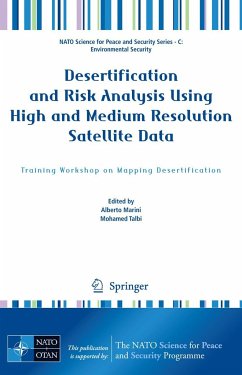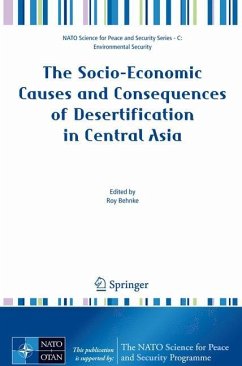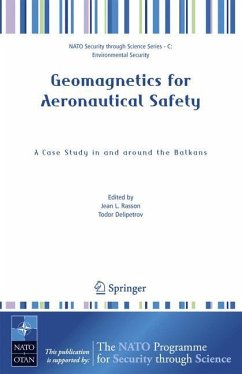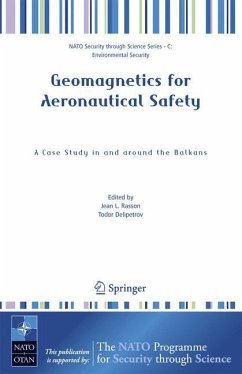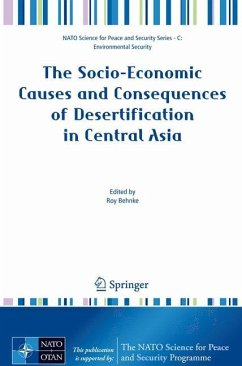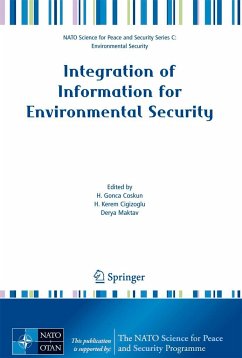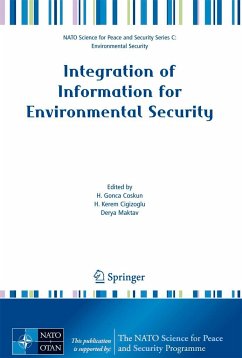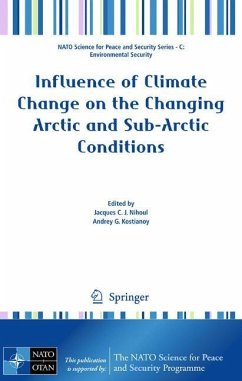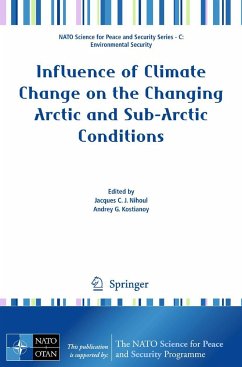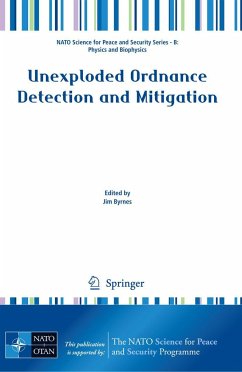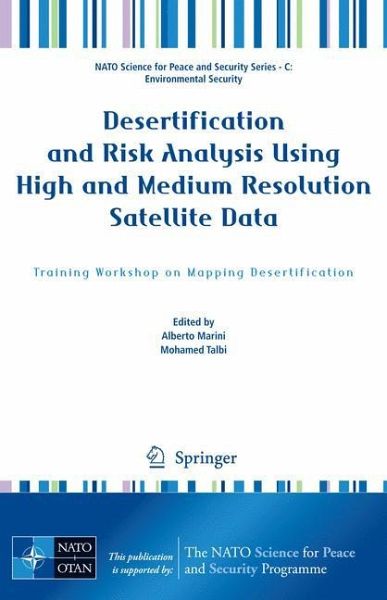
Desertification and Risk Analysis Using High and Medium Resolution Satellite Data
Training Workshop on Mapping Desertification
Herausgegeben: Marini, Alberto; Talbi, Mohamed
Versandkostenfrei!
Versandfertig in 6-10 Tagen
151,99 €
inkl. MwSt.

PAYBACK Punkte
76 °P sammeln!
This publication collects the results of a practical experience of survey, through the direct control of satellite images from high to medium resolution, over areas subjected to desertification problems. The problems of the local population are closely tied to the equilibrium in the management of the territory, which is compromised by the difficulties of maintaining traditional methodologies of management. The new survey technologies, based on the Remote Sensing and Geographic Information System, allow analyzing the details of the present situation and point out the dynamism of the phenomena and the impacts with anthropogenic activities.
Training has been carried out in the Tozeur area, in central Tunisia, where participants had the chance to analyze on the field a series of different aspects. It has also been possible to discuss similar experiences in distant territories and the importance of the physical processes of desertification. During the development of the intensive training on the job, visits to entrepreneurial truths concerning the management of the territory have been carried out. The analyzed area finds in tourism an answer to the necessities of improving the living conditions of the population.
Specialists from twelve nations presented actions of management of the territory, with detailed attention on environmental security and the conditions of the territory. From the observations carried out the fragility of the landscape of the oases has emerged, which are subjected to total anthropogenic management and therefore closely linked to the availability of the specialized workers in the traditional methodologies. It is natural that the management of the lands changes according to modern technologies, but, with a too fast pace, this evolution risks to upset the management of the territory. The exchange of information, the ability to map the variations, the dialogue between the parts, will favor the maintenance of the political security in the Mediterranean region. This experience of cooperation and association constitutes a precedent for the development of a system of high education courses to be provided to the local communities for the common wellbeing.
Training has been carried out in the Tozeur area, in central Tunisia, where participants had the chance to analyze on the field a series of different aspects. It has also been possible to discuss similar experiences in distant territories and the importance of the physical processes of desertification. During the development of the intensive training on the job, visits to entrepreneurial truths concerning the management of the territory have been carried out. The analyzed area finds in tourism an answer to the necessities of improving the living conditions of the population.
Specialists from twelve nations presented actions of management of the territory, with detailed attention on environmental security and the conditions of the territory. From the observations carried out the fragility of the landscape of the oases has emerged, which are subjected to total anthropogenic management and therefore closely linked to the availability of the specialized workers in the traditional methodologies. It is natural that the management of the lands changes according to modern technologies, but, with a too fast pace, this evolution risks to upset the management of the territory. The exchange of information, the ability to map the variations, the dialogue between the parts, will favor the maintenance of the political security in the Mediterranean region. This experience of cooperation and association constitutes a precedent for the development of a system of high education courses to be provided to the local communities for the common wellbeing.
This work becomes with methodological rigor a part of the innovative proposals for the characterization of the areas at risk of desertification. The complexity of the phenomenon of desertification, which involves extended surfaces in all continents, is one of the most alarming processes of the environmental degradation of our Planet and threatens the health and the living conditions of over a billion of persons. The food crisis, in continuous increase, ask for the world of research to urgently supply reassuring solutions concerning the acquisition of indicators, which are easy to monitor and concur to control the phenomenon in order to fight its acceleration. The constant but different combination that determines the diffusion of deserti- cation in the territories, attributable mostly to climatic changes and the activities of the man, makes our job challenging and complicated, since it varies from region to region. We are aware of all this and therefore we think that the methodological approach of survey of the data is an extremely important element to locate of the phenomenon and to monitor its course. This work, which is characterized for its multi-disciplinary approach, suggests solutions that we wish will quickly find concrete applications at international level. Prof. Bruno Dettori President CNLSD (Comitato Nazionale per la Lotta alla Siccità e alla Desertificazione) v





